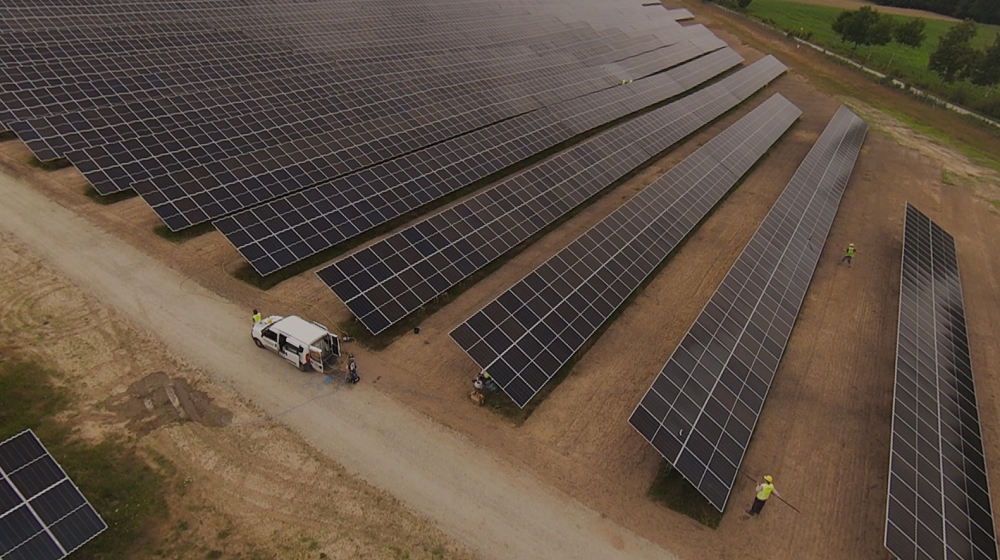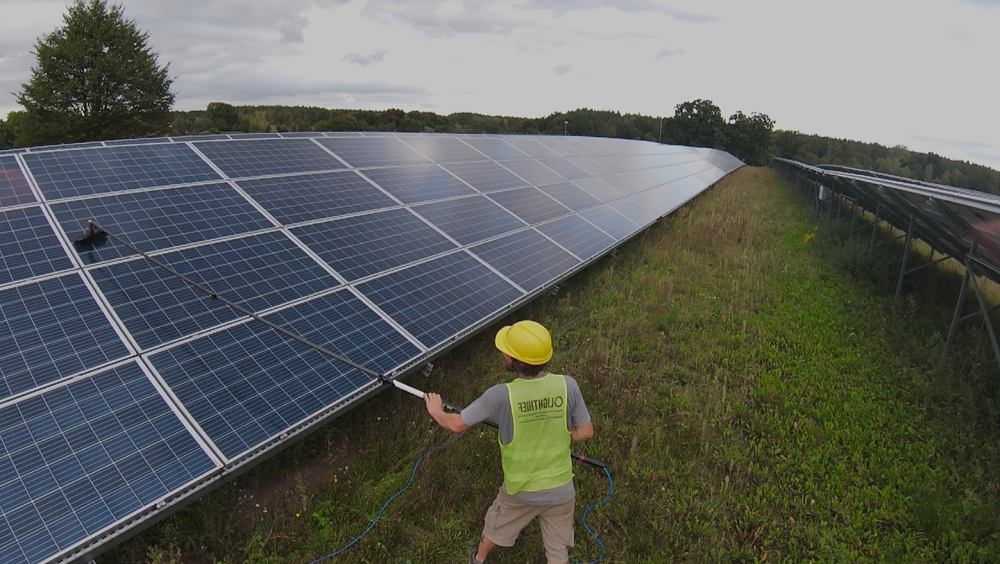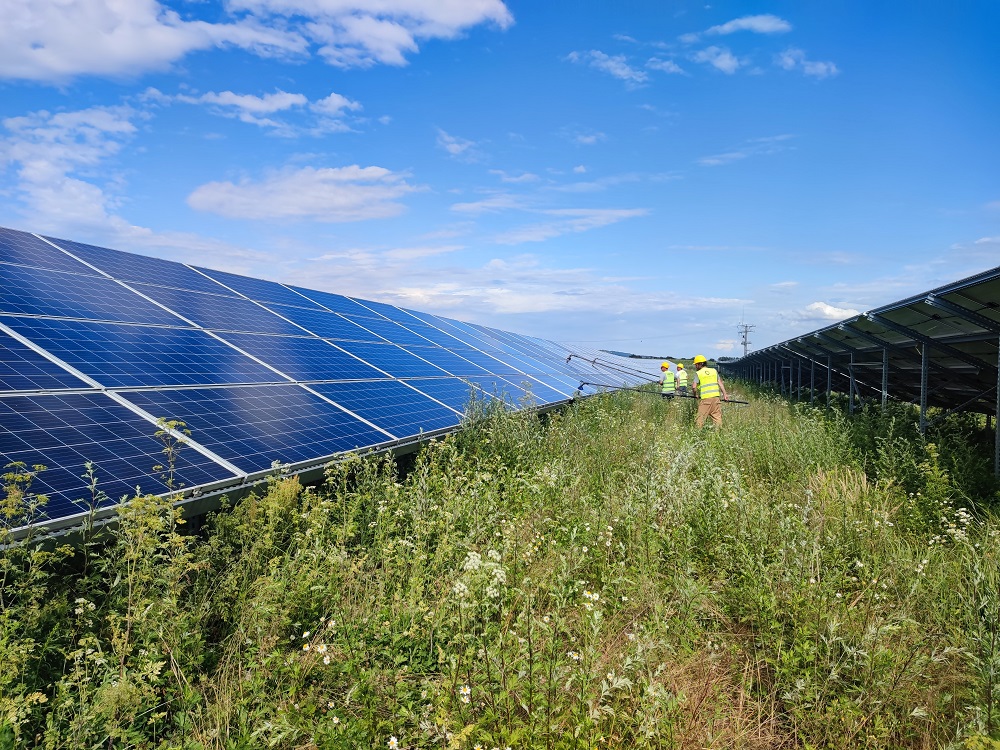By EC, Cyprus Energy Review
In the heart of Limassol, I meet with Dr Arkadius Sybaris, Founder and CFO of Lighthief International, a European powerhouse IPP (independent power producer) in the solar energy sector, with its central headquarters in Cyprus. As the Mediterranean sun streams through the windows of their modern office, Dr Sybaris speaks with enthusiasm and authority about the company’s vision for renewable energy on the island.
EC: Lighthief International has built a strong reputation across Europe. Could you tell our readers about your company’s background?
Arkadius Sybaris: Lighthief International started as a vision to transform the European energy landscape. Over the years, we’ve grown into one of the largest photovoltaic service providers in Europe, with operational offices in Poland, Spain, Italy, Romania, and Germany. Our expertise spans the entire photovoltaic value chain – from building large-scale solar farms and residential installations, to providing comprehensive operations and maintenance services. We’ve also developed significant capabilities in recycling photovoltaic panels and wind turbines, which addresses a critical sustainability challenge in the renewable energy sector.
EC: What are Lighthief’s plans for Cyprus now?
AS: Cyprus represents a strategic opportunity for us. The island enjoys over 320 days of sunshine annually, making it ideal for solar energy production. Yet, the potential remains largely untapped. We had established our central headquarters here, because we see Cyprus as both a market with tremendous growth potential and a strategic base for our Mediterranean operations.
Today, I’m pleased to announce that Lighthief is expanding its operations across the entire island, offering our complete range of services to both commercial and residential clients. We’re bringing decades of international experience to local energy challenges.
EC: How does your international experience translate to advantages for Cypriot customers?
AS: Our multinational experience gives our clients confidence when entrusting us with their projects, whether they’re utility-scale solar farms or smaller rooftop installations. We’ve encountered and solved virtually every challenge in solar implementation across diverse markets and regulatory environments.
For large commercial clients, we bring proven expertise in developing solar farms that maximise energy yield, while ensuring regulatory compliance and minimising environmental impact. For homeowners and small businesses, we offer customised photovoltaic solutions that significantly reduce electricity costs while increasing property value.
Additionally, our maintenance capabilities are unmatched. As one of Europe’s largest O&M providers for photovoltaic systems, we ensure installations continue performing optimally throughout their lifespan. This expertise is particularly valuable in Cyprus, where dust and high temperatures can impact system efficiency if not properly maintained.

EC: You mentioned recycling capabilities. How important is this aspect of your business?
AS: Extremely important. The renewable energy industry must address the full lifecycle of its technologies. Standard photovoltaic panels have a lifespan of 25-30 years, and we’re approaching a point where the first generation of panels will need replacement.
Our recycling facilities can recover up to 95 per cent of materials from decommissioned panels, including valuable elements like silver and silicon. This not only reduces environmental impact, but also recovers precious resources. We’re planning to establish similar capabilities here in Cyprus as the market matures, potentially serving the broader Eastern Mediterranean region.
EC: How do you view the future of solar energy in Cyprus specifically?
AS: Cyprus has extraordinary potential. With the highest solar irradiation in Europe, the island could become a model for solar energy adoption. However, realising this potential requires addressing several infrastructure challenges.
First, the current transmission grid needs significant modernisation to accommodate distributed generation. When numerous solar installations feed power back to the grid simultaneously, it creates technical challenges that the existing infrastructure wasn’t designed to handle.
Second, energy storage is critical. Solar power is intermittent – extremely productive during daylight hours, but non-existent at night. For Cyprus to fully leverage its solar resources, we need substantial investments in energy storage solutions that can balance supply and demand.
EC: What specific storage solutions do you envision for Cyprus?
AS: We advocate for a multi-layered approach. At the utility scale, we see opportunities for pumped hydro storage, utilising the island’s topography. For commercial applications, battery storage systems integrated with solar installations can provide resilience against grid outages while enabling energy arbitrage.
For residential customers, home battery systems paired with rooftop solar allow households to maximise self-consumption and achieve greater energy independence. Our experience in Germany and Italy, where residential storage has achieved significant penetration, provides valuable insights for the Cypriot market.

EC: Let’s talk about residential installations. How do you see the role of private consumers in renewable energy development on the island?
AS: Private consumers are absolutely critical to Cyprus’s energy transition. Residential installations represent a tremendous opportunity — not just for homeowners to save on electricity costs, but for the entire energy system to become more resilient and distributed.
At Lighthief, we’ve developed specialised home installation packages tailored to different property types common in Cyprus – from urban apartments with limited roof space, to suburban villas with greater installation potential. Our systems include smart monitoring technology that allows homeowners to track production and consumption in real-time through their smartphones.
What’s particularly exciting is how engaged Cypriot homeowners are becoming. They understand that with electricity prices rising, a solar installation is both an environmental choice and a smart financial investment that typically pays for itself within 5-7 years, while adding value to their property.
EC: These sound like ambitious plans requiring significant investment. Are there financial barriers to implementation?
AS: The economics of solar energy have transformed dramatically. Today, solar represents the lowest-cost form of new electricity generation in most markets, including Cyprus. The financial case for solar is compelling on its own merits, even without subsidies.
That said, the initial capital requirements can be substantial, particularly for grid upgrades and storage infrastructure. For large projects, public-private partnerships become essential. We’re actively engaging with Cypriot authorities to explore innovative financing mechanisms that can accelerate deployment, while minimising pressure on public finances.
For residential customers, we’re proud to offer access to low-interest financing guaranteed by European Union programmes specifically designed to accelerate clean energy adoption. These EU-guaranteed loans make solar installations affordable for virtually any homeowner, with monthly payments often lower than their current electricity bills.
What’s more, we’ve established strategic partnerships with Cyprus’s leading banking institutions to streamline the financing process. Through these collaborations, we offer simplified application procedures that significantly reduce paperwork and approval times. Our banking partners prioritise these green energy loans due to their EU guarantees, making the financing process much smoother than traditional loans. A customer can apply through us and, within days rather than weeks, they can have their financing approved and installation scheduled.
We handle all the documentation and serve as the single point of contact between the customer, the bank, and installation teams, making it a truly seamless experience. This integrated approach has dramatically increased adoption rates, as it removes both financial and procedural barriers that previously deterred many homeowners.
These financing options are game-changers, because they remove the upfront cost barrier that has historically limited adoption. Now, a family can go solar with zero initial investment, and begin saving immediately. This democratises access to renewable energy and accelerates the transition across all segments of society.

EC: How do you respond to concerns about land use for large-scale solar farms on an island with limited space?
AS: This is a legitimate concern that requires thoughtful solutions. We prioritise brownfield development – repurposing previously disturbed lands like former industrial sites or depleted quarries for solar installations. We’re also exploring agricultural co-location models, where specific crops can be grown beneath elevated panel structures, maximising land productivity.
For Cyprus specifically, we see tremendous potential in building-integrated photovoltaics and utilizing existing infrastructure like parking lots with solar canopies. These approaches generate clean energy while adding functional value without consuming additional land resources.
EC: Finally, what’s your bold vision for Cyprus’ energy future?
AS: I envision Cyprus becoming the Mediterranean’s first carbon-neutral island economy, powered predominantly by solar energy with sophisticated storage systems ensuring round-the-clock reliability. I see an opportunity for the island to become an innovation hub for renewable energy technologies adapted to Mediterranean conditions.
Beyond environmental benefits, this transformation would create high-skilled jobs, reduce dependence on imported fuels, and potentially position Cyprus as an energy exporter through interconnections with neighbouring countries. The technology exists today to realise this vision – what’s needed is coordinated action among government, industry, and the financial sector.
With Lighthief’s expertise and Cyprus’s natural advantages, we’re committed to being a catalyst for this transformation. Our expansion across the island is just the beginning of what I believe will be an extraordinary energy revolution for Cyprus.
Dr Arkadius Sybaris is the founder and CFO of Lighthief International. The company offers comprehensive photovoltaic solutions including design, installation, maintenance and recycling services across Cyprus, with its central headquarters located in Limassol.

- Lightheif International Ltd
E28 October Ave 249
Lophitis Business Center 1, Office 201
3035 Limassol, Cyprus - https://lighthief.energy | https://lighthief.cy/






Click here to change your cookie preferences